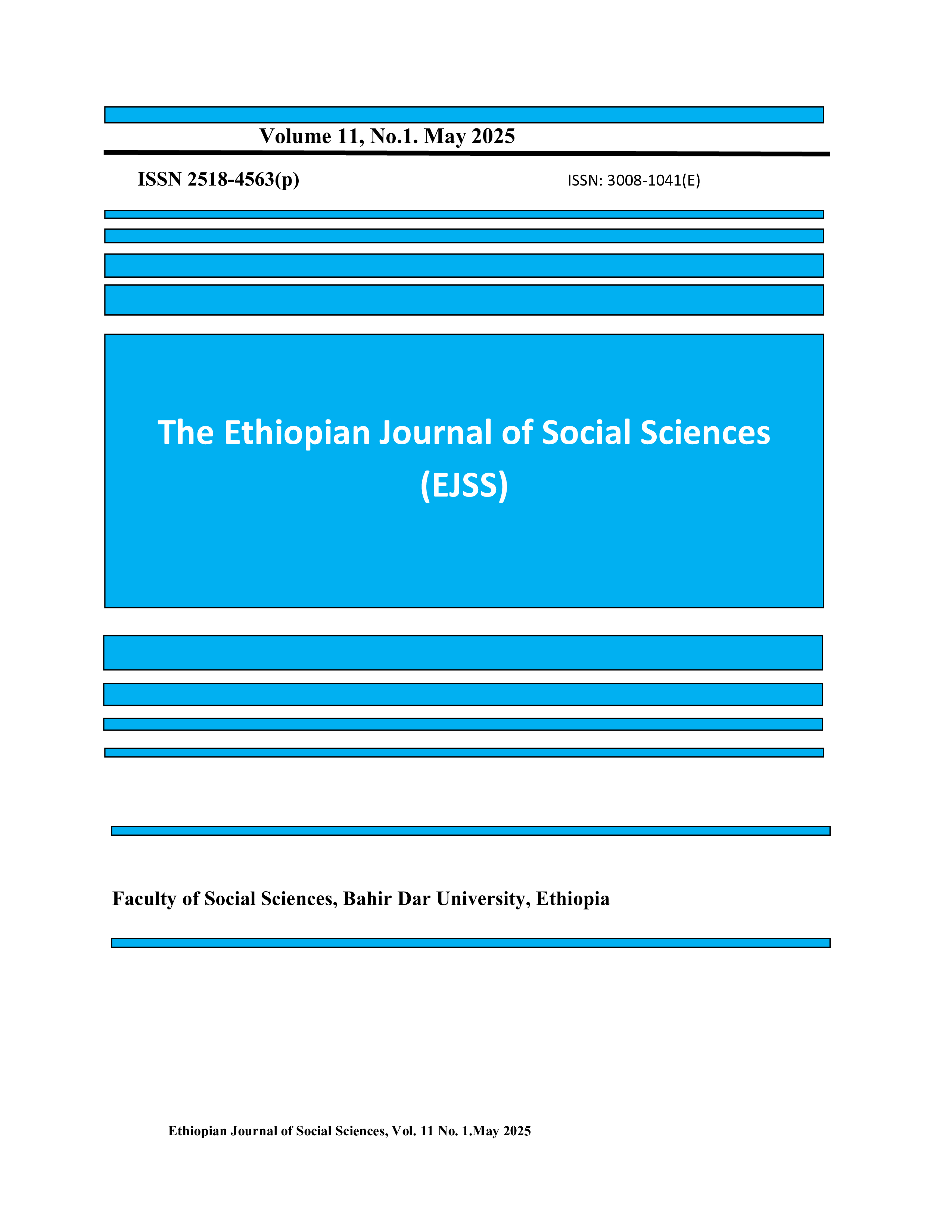Challenges of nation building in Ethiopia: Focus on the authoritarian nature of political regimes' since 1930s
Abstract
This study examines the adverse impact of Ethiopia's entrenched authoritarian political regimes on the nation-building process. Nation-building, shaped by historical, political, economic, and social factors has faced persistent challenges in Ethiopia across various regimes. The research employed a qualitative approach, using critical analysis of secondary data sources. The findings reveal that authoritarianism, mainly rooted in the political elite’s efforts to centralize power, has consistently hindered Ethiopia’s efforts to build a cohesive nation. These political regimes have often justified their dominance by invoking the need to combat regionalism and promote a unified national identity. However, the study’s comparative analysis, drawing on cases such as Switzerland, highlights that successful nation-building hinges on principles like social justice, inclusiveness, individual freedom, and political settlement – principles largely absent in Ethiopia's political landscape. The political elite’s imposition of authority by force, alongside societal tendencies to either support the regime or disengage politically, has fueled recurrent rebellions, prolonged conflicts, and external vulnerabilities. These factors have significantly undermined Ethiopia's nation-building efforts. The enduring authoritarian culture remains a significant barrier to contemporary nation-building, underscoring the need for transformative governance and political culture.
Keywords: Authoritarianism, Ethiopia, Nation-building, political culture, Regime,
Copyright (c) 2025 Yideg Munana Negash, Kidane Mengisteab, Wuhebegzer Ferede, Bewuketu Dires

This work is licensed under a Creative Commons Attribution-ShareAlike 4.0 International License.
Authors who publish with this journal agree to the following terms:- Authors retain copyright and grant the journal right of first publication with the work simultaneously licensed under a Creative Commons Attribution License that allows others to share the work with an acknowledgement of the work's authorship and initial publication in this journal.
- Authors are able to enter into separate, additional contractual arrangements for the non-exclusive distribution of the journal's published version of the work (e.g., post it to an institutional repository or publish it in a book), with an acknowledgement of its initial publication in this journal.
- Authors are permitted and encouraged to post their work online (e.g., in institutional repositories or on their website) after publication in EJSS.

